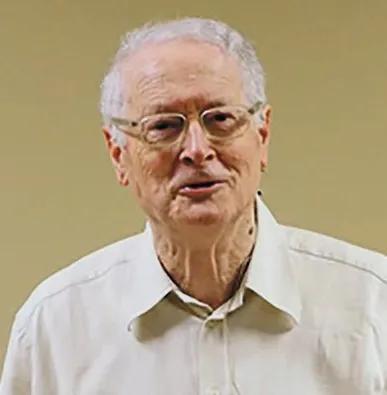
Ten Questions: ‘More than a conqueror’
Geoff Thomas
My name is Geoff Thomas and I was the pastor in Alfred Place Baptist Church (Independent) in Aberystwyth for 50 years. I retired five years ago. My wife Iola died after having Alzheimers for four years. Two years after Iola’s death I married our old friend Barbara and came to live in Chiswick, London. For someone who loves history, London is a most interesting place for an old man, though I do miss the seaside and friends in Aberystwyth. There are many gospel churches in London and it is surprisingly religious. I am a member of Amyand Park Chapel in Twickenham and thank God for the congregation and its pastor, Gerard Hemmings.

pastoral care
Ministry’s dark feelings

Helen Thorne-Allenson
Date posted: 1 Jun 2022
Ministry is a privilege. It’s a hugely high
call. And whether we’re full time and paid,
or volunteering a few hours within the local
church, we can all know we have a part to
play in the greatest mission the world has
ever known.
It’s wonderful
to help people come
to
Christ and grow in their faith, in all the
circumstances of life. The process of pointing
people to Jesus can be a joy. The relational
depth, a delight. When we glimpse the fruit
God is bringing into people’s lives, we can be
stirred to praise. But, just between you and
me, that’s not how we always feel, is it?

From warfare with Spitfires to spiritual warfare: a key global mission

Iain Taylor
Date posted: 1 Feb 2022
Eighty years ago what is now an unremarkable industrial estate outside Swindon was a hive of activity. Scores of Supermarine Spitfires rolled off the production lines at the South Marston works in the fight to rid the world of Adolf Hitler.
Today a small part of the same site is, its occupiers claim, busily embroiled in the vital spiritual struggle to send to pastors across the developing world the books they need to teach the gospel accurately to their flocks.

Don’t hide! Do women need to talk about theology more?
Martha-Margaret Cotten
Date posted: 1 Apr 2022
In my day-to-day interactions, it is rare to find women discussing theology, ecclesiology, the state of the current evangelical church, missions, or really anything vital to the well-being of the church.
Our conversations revolve mainly around two subjects: our children – how we will educate them, what they are eating, if they are sleeping, and our husbands and their jobs. If we are in a close and healthy group, we may intermittently discuss our walk with Christ, spiritual growth, or struggles. But, at least in my experience, those are few – and even in them, true theological discussions are highly uncommon.
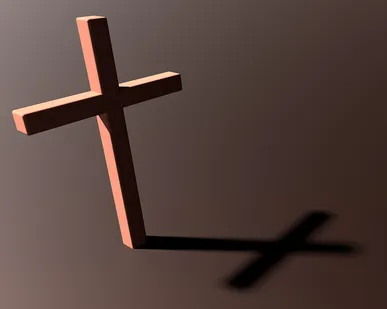
A new call for evangelical integrity

Michael Reeves
Date posted: 1 Apr 2022
The New Testament has a good deal to say about the importance of being gospel people.
Paul’s letter to the Romans, for example, is a New Testament book all about the gospel and about being gospel people. In the first 11 chapters, Paul lays out the ‘gospel of God, which he promised beforehand through his prophets in the holy Scriptures’ (1:1–2). It is good news ‘concerning his Son’ (1:3), the Last Adam (5:12–21), our only hope. And it is good news concerning ‘the redemption that is in Christ Jesus, whom God put forward as a propitiation by his blood’ (3:24–25). In Romans, we read that: ‘None is righteous, no, not one; no one understands; no one seeks for God. All have turned aside; together they have become worthless;’ (3:10–12).
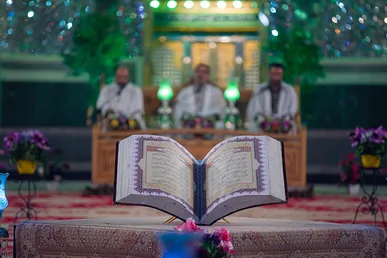
Understanding Ramadan
Alan Hallmart
Date posted: 1 Apr 2022
The UK has become much more multicultural in past 60 years. In 1961, Muslims made up approximately 0.1% of the UK population, today it stands at approximately 5.2% or around 3.4 million, increasing the likelihood that they will become our friends, neighbours and colleagues.
Ramadan is a time of increased focus on growing spiritually closer to Allah and as such is a great opportunity to start a faith conversation with our Muslim friends.
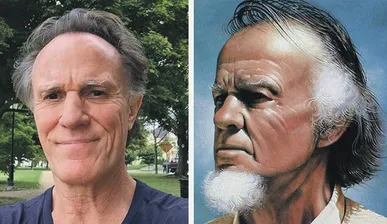
Meeting Frank Schaeffer – atheist son of Francis
Luke Barrs
Date posted: 1 Mar 2022
Frank Schaeffer (not to be confused with his father Francis) titled his memoir Crazy for God with the helpful subtitle How I Grew Up as One of the Elect, Helped Found the Religious Right, and Lived to Take All (or Almost All) of It Back.
His writing is engaging and thought-provoking, especially for myself as a Christian father and pastor. His father, Francis Schaeffer, was a much-beloved Christian thinker who utilised contemporary music, art history, and philosophy to answer the questions of his day. He was truly countercultural in the way he wrote and lived.
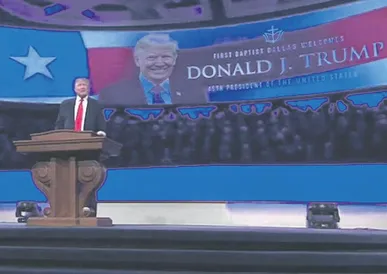
history
Evangelical weaknesses?

Michael Haykin
Date posted: 1 Mar 2022
When did Evangelicalism as a movement emerge?
Is it a relative newbie, as some would assert, a creation of the 1940s out of the ruins of Fundamentalism or is it even more recent, a product of the Sixties? Or does it have much older roots?
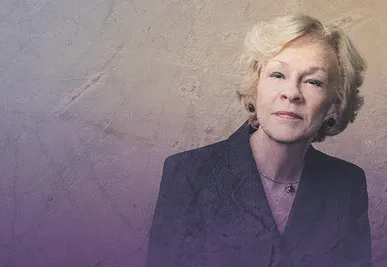
‘I fear Christendom has given much effort to hiding and ignoring iniquities we have known about…’
Diane Langberg
Date posted: 1 Mar 2022
In recent years, we who call ourselves Christians have been speaking and writing about topics like ‘abuse in the church’, ‘cruelty in the sanctuary’ and the dangers that can be found in ‘God’s house’. It seems that the place God designed to be a refuge for His people has instead, at times, become a den of thieves.
These descriptions are what we call an oxymoron – statements that are a combination of contradictory words and incongruous elements. Think about this now common phrase: ‘abuse in Christian organisations’. These words should take our breath away and cause up to weep. Sadly, they often result in scrambling for ways to hide or ignore the abuse so that the ‘Christian’ organisation can proceed undisturbed. We have forgotten God’s word to the young boy Samuel. When called by God, Samuel responded: ‘Speak, for your servant is listening.’ God told him that he was about to bring judgment on Eli’s house forever for the iniquity he knew … and did not rebuke’ (1 Sam. 3:13).
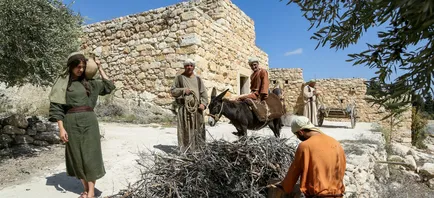
Marking 160 years of Christian service in an Arab city
Mireia Prats Llivina
Date posted: 1 Mar 2022
The Nazareth Trust is one of the largest Scottish Christian organisations, the third-largest employer in Nazareth and one of the largest Christian organisations in Israel.
We are a diverse organisation with individuals from different backgrounds working together. Our story traces its roots back to 1861 when Dr Vartan, a freshly graduated Armenian doctor and devoted Christian, opened the first clinic in Ottoman Galilee.
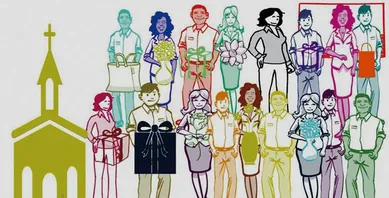
everyday evangelism
The priesthood of all believers: is it really what you think it is?

Glen Scrivener
Date posted: 1 Jan 2022
‘Gosh, that was marvellous, I could never do that’ said the woman next to me at an evangelism seminar.
We had just watched an excellent evangelist run a 90-minute training session on leading others to Christ. We both agreed that the session was terrific and we both agreed that we could not do what the evangelist had just done (and I say this as someone with ‘Evangelist’ on my business card). But I think we can all recognise the sentiment.

On The Edge: a safe space
A recent initiative is helping evangelicals in some of the traditional denominations evaluate their long-term future within them. Susie Leafe writes:
On The Edge exists for those, who with great reluctance, are at different stages of pondering whether for reasons of conscience, practicality or ministry effectiveness they can remain in the Scottish Episcopal Church, Church of England or Church in Wales.

pastoral care
Letting down others?

Helen Thorne-Allenson
Date posted: 1 Feb 2022
Do you ever feel as if you are letting everyone down? The inbox is out of control. The people you’ve been meaning to phone still haven’t heard from you. The to-do list is spiralling. And, even when you do meet with someone, you’re conscious they’re not getting your best (It’s not just you! Ed.).
At times like this we know that life isn’t sustainable, but we also desperately want to deliver what we (or others) think we should. So, distracted, demoralised and demotivated, we try to plod on, hoping that – one day, if we try hard enough – we’ll manage to catch up. If that doesn’t work, we can always run away, we remind ourselves – subconsciously at least, that’s often our Plan B.
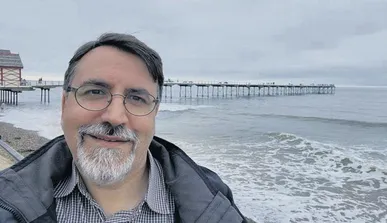
Josep Rossello: what’s next?
Nicola Laver interviews the South American bishop who came to the UK on a mission which has unfolded in unexpected ways
An exodus of evangelicals from the Free Church of England (FCE) continues against the backdrop of serious fraud allegations and a culture of secrecy against its senior leadership. Both the police and the charity regulator are investigating a range of allegations against Bishop Primus John Fenwick, who is resisting calls to resign.
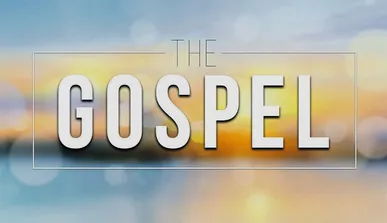
everyday evangelism
Three questions on evangelism and the three wrong right answers!

Glen Scrivener
Date posted: 1 Dec 2021
When I train people in personal evangelism there are three questions I ask which always elicit the right wrong answers.
They are the right wrong answers because they are the ones I expect people to give. But they’re also the right wrong answers because, in their own way, they are correct. It’s just that you can be correct and wrong at the same time. Let me share the three questions and the answers they usually provoke:

Unholy Halloween: what’s the history?
Gary Clayton
Date posted: 1 Nov 2021
The road to hell, in a quote generally attributed to Samuel Johnson or St Bernard of Clairvaux, is paved with good intentions.
Whether you’re a UK believer organising a ‘Light Party’, an evangelical Christian running a ‘hell house’1 in America, an avid trick-or-treater pounding the streets, or one of the 11,766 people in England and Wales identifying as Wiccans in the 2011 Census, Halloween is an issue that’s hard to avoid.
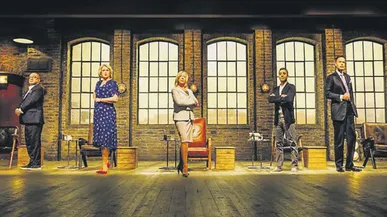
Is there an undiscovered Dragon in your church?
Karen Todd
Date posted: 1 Dec 2021
Church is not a business, right?
In recent months many of us have come to question the businesslike approaches of many megachurches and church plants, particularly as scandals have revealed the thin ice on which some have been built. But, before we overreact and discredit this businesslike approach, we should not lose the valuable insights that those with a good business head have brought to our churches.
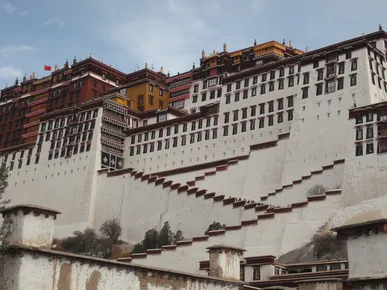
Tibet: what challenges under Chinese rule face the few believers?
As a precocious youngster I devoured Seven Years in Tibet by Heinrich Harrer, the Austrian climber who after World War II became tutor to the young Dalai Lama in Tibet.
I still have the newspaper clippings of the thrilling escape of the Dalai Lama into India from Chinese troops in 1959. I then had no idea that over 50 years later I would myself see the golden roofs of the gigantic Potala Palace in Lhasa and cross the vast plateau with its nomads and herds of yaks.
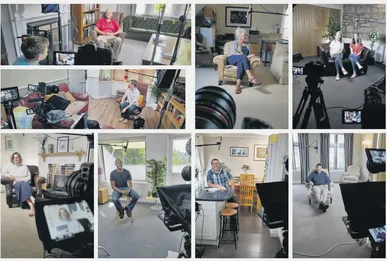
A Passion For Life 2022 – how is it designed to work?
John MacKinnon
Date posted: 1 Oct 2021
One of life’s most enjoyable experiences and one that spans the globe in its cultural relevance is the joy of sharing a meal amongst family, friends or even on occasions with complete strangers.
In the journey of life, I’ve known the simplicity of an apple given at great sacrifice in a poverty-stricken African village, the elaborate feasts of civil gatherings, the splendour of wedding celebrations, the countless choices of restaurant menus and, my favourite, the gathering round the family table for home-cooked fayre where the main ingredient is love.
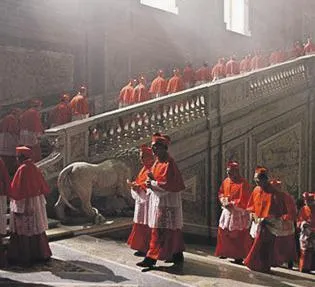
evangelicals & catholics
Who will be the next Pope?

Leonardo De Chirico
Date posted: 1 Oct 2021
There is a general perception that Pope Francis’s pontificate has entered an irreversibly declining phase.
It is not just a question of age: yes, Pope Francis is elderly and in poor health. But aging aside, the pontificate finds itself navigating a descending parabola. It started with the language of ‘mission’ and ‘reform’. Francis’ reign, now nearly ten years old, was immediately engulfed in difficulties, particularly within the Catholic Church.
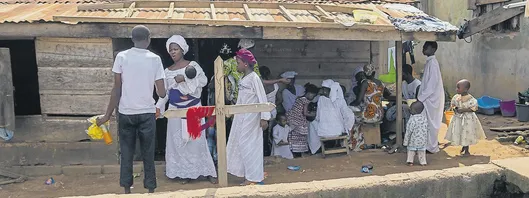
Mission in the suffering church
Ben Kwashi
Date posted: 1 May 2020
Ben Kwashi, Bishop of Jos, calls Christians to keep sacrificing for the sake of the gospel
Mission is the hallmark of the church. John Stott put it this way: ‘Mission is an activity arising out of the very nature of God. The living God of the Bible is a sending God, which is what “mission” means.’

John Stott’s ‘new’ book: a heartfelt environmental plea
Thomas Creedy
Date posted: 1 Nov 2021
In 2011 IVP published what was intended by the author to be his final book – summing up decades of prayer, study and ministry. John Stott’s The Radical Disciple, ten years on, continues to provoke, encourage and inspire.
Stott’s own purpose in that book was ‘to consider eight characteristics of Christian discipleship which are often neglected and yet deserve to be taken seriously’. One of these was ‘creation care’, an issue which is increasingly coming to our attention and the focus of the world. With the Stott centenary running from April 2021 to April 2022, IVP took the decision to publish John Stott on Creation Care, a definitive collection of Stott’s writings on the topic, carefully compiled from throughout his ministry. Sam Berry and Laura Yoder, in their own way, have carefully curated tens of thousands of Stott’s own words, adding interpretation and context, to produce a vital new book.
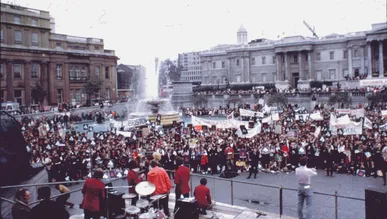
Fifty years on: from the Festival of Light to CARE and the future…
It was Saturday, 25 September 1971. Tens of thousands of people, young and old, met together on London’s Trafalgar Square for the largest ever open-air gathering of Christians in British history.
People carried placards showing a map of the UK or showing messages like ‘Jesus loves you’. Some wore Nationwide Festival of Light (NFoL) T-shirts and there was a general atmosphere of sheer excitement and expectation.
everyday evangelism
God’s plan to reach
the world: it might
surprise you

Glen Scrivener
Date posted: 1 Aug 2021
‘If I became a Christian, I would have to
spend every waking moment trying to save
others.’
The words
came
from
an
extremely
intelligent student considering
the call of
Christ – let’s call him Phil. It was the last
night of a university mission and Phil told
me he was terrified of the gospel being true
because if it was he couldn’t imagine how he
could justify anything other than a life of
unceasing evangelism from that day on.